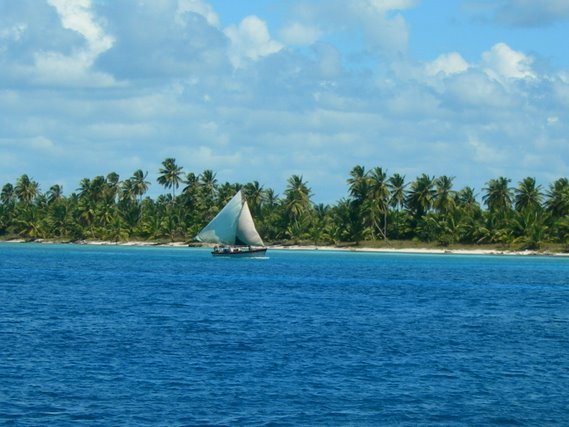Viii
The timing of this later voyage could not have been worse. The world was plunged into war at midnight on August 8, 1914, the same day the Endurance sailed from Plymouth.
P. 13
Fortitudine vincimus – “By endurance we conquer”
P. 17
*Though Shackleton bought the Endurance for $67,000, the Framnaes shipyard today (1959) would not undertake to build a similar vessel for less than $700,000 – and the cost might well run to $ 1 million, they estimate.
P. 51
Late in the evening, the men on deck saw a band of about ten emperor penguins; they waddled slowly up toward the ship, then stopped a short distance away. Emperors, singly or in pairs, were a common sight, but nobody had ever seen so large a group before. The penguins stood for a moment watching the tortured ship, then raised their heads and uttered a series of weird, mournful, dirgelike cries. It was all the more eerie because none of the men – not even the Antarctic veterans among them – had ever before heard penguins voice anything except the most elemental, croaking sorts of noises.
The sailors stopped what they were doing, and old Ton McLeod turned to Macklin. “Do you hear that?” he asked. “We’ll none of us get back to our homes again.”
P. 55
May the Lord help you to do your duty and guide you through all the dangers by land and sea.
May you see the works of the Lord and all His wonders in the deep.
P. 56
Nevertheless, there was a remarkable absence of discouragement. All the men were in a dazed state of fatigue, and nobody paused to reflect on the terrible consequences of losing their ship. Nor were they upset by the fact that they were now camped on a piece of ice perhaps six feet thick. It was a haven compared with the nightmare of labor and uncertainty of the last days on the Endurance. It was quite enough to be alive – and they were merely doing what they had to do to stay that way.
There was even a trace of mild exhilaration in their attitude. At least they had a clear-cut task ahead of them. The nine months of indecision, of speculation about what might happen, of aimless drifting with the pack over. Now they simply had to get themselves out, however appallingly difficult that might be.
P. 57
After he had spoken, he reached under his parka and took out a gold cigarette case and several gold sovereigns and threw them into the snow at his feet.
Then he opened the Bible Queen Alexandra had given them and ripped out the flyleaf and the page containing the Twenty-third Psalm. He also tore out the page from the book of Job with this verse on it:
Out of whose womb came the ice?
And the hoary frost of Heaven, who hath gendered it?
The waters are hid as with a stone.
And the face of the deep is frozen.
And he laid the Bible in the snow and walked away.
It was a dramatic gesture, but that was the way Shackleton wanted it. From studying the outcome of past expeditions, he believed that those who burdened themselves with equipment to meet every contingency had fared much worse than those who had sacrificed total preparedness for speed.
P. 64
Though he was virtually fearless in the physical sense, he suffered an almost pathological dread of losing control of the situation. In part, this attitude grew out of a consuming sense of responsibility. He felt he had gotten them into their situation, and it was his responsibility to get them out. As a consequence, he was intensely watchful for potential trouble-makers who might nibble away at the unity of the group. Shackleton felt that if dissention arose, the party as a whole might not put forth that added ounce of energy which could mean, at a time of crisis, the difference between survival and defeat. Thus, he was prepared to go to almost any length to keep the party close-knit and under his control.
P. 65
Hudson was just as had always been, simple and a little irritating. His attempts at humor were often more foolish than funny because he lacked perception. He was a young dandy, a little impressed with his own good looks but really not too sure of himself. As a result of this fundamental insecurity, he was quite self-centered and a poor listener. He could be counted on to interrupt any conversation to inject something about himself—even though what he said bore no relation to the subject being discussed. And his self-centeredness made it difficult for him to tell when his leg was being pulled, as was the case in the practical joke from which he got his nickname, Buddha. Strangely, he seemed to enjoy a joke on himself—at least it gave him the chance to occupy center stage. Shackleton was not fond at all of Hudson, but he preferred putting up with him to inflicting him on others.
P.104
A sense of mounting desperation began to infect them. James wrote on the following day: “Something decisive must occur soon, and whatever it may be will be preferable to continued inactivity. This is our fifth month since our shipwreck. When we left, we were going to be ashore in a month! ‘Man proposes—‘ * applies here with a vengeance.”
* For some reason, James omitted the last portion of the quotation: “Man proposes, God disposes.”
P.106
There were some intrepid attempts to make jokes about cannibalism. “Greenstreet and I,” wrote Worsley, “amuse ourselves at Marston’s expense. Marston is the plumpest man in the camp, and we become very solicitous about his welfare and condition, making a great show of generosity by offering him old penguin bones that we have gnawed till there is nothing left. We implore him not to get too thin and even go as far as to select chops, etc., off him and quarrel about who shall have the tenderest part. Finally, he gets so disgusted with us that whenever he sees us approaching he turns and walks away.”
P.118
Throughout the night, the hoarse croaking of the penguins, punctuated by the explosive sound of schools of whales blowing, created almost a din. When dawn finally came, the weather was clear and bright, with a moderate westerly wind blowing. Once again the men could see Clarence Island, and to the left of it, very faintly, the chain of peaks on Elephant Island. Worsley counted ten of them.
P. 123
The James Caird was in the lead with Shackleton at the tiller. So far as the ice permitted he set a course for the northwest. Next came Worsley steering the Dudley Docker, then Hudson in the Stancomb Wills. The sound of their voices chanting, “stroke…stroke…stroke…”mingled with the cries of the birds overhead and the surge of the swell through the pack. With each stroke, the oarsman fell more into the rhythm of their task.
P. 150
“Blackboro,” he shouted in the darkness.
“Here, sir,” Blackboro replied.
“We shall be on Elephant Island tomorrow,” Shackleton yelled. “no one has ever landed there before, and you will be the first ashore.”
Blackboro did not answer.
P. 200
Then, too, there were the reindeer hairs. They moulted from the insides of the sleeping bags, and at first they had been only a petty annoyance. But no matter how much hair was shed, the supply seemed inexhaustible. And they were everywhere—the sides of the boat, the seats, the ballast. They clung set in clumps to faces and hands. The men breathed them as they slept and occasionally woke up choking on them. The hairs ran down in the bottom and clogged the pump, and little clusters of them were turning up more and more frequently in the food.
Part of the Afterword:
On the earth, nations will be in anguish and perplexity at the roaring and tossing of the sea. Men will faint from terror, apprehensive of what is coming on the world, for the heavenly bodies will be shaken. At that time they will see the Son of Man coming in a cloud with power and great glory. When these things begin to take place, stand up and lift up your heads, because your redemption is drawing near. Luke 21:25-28, NIV
Lansing, Alfred. 1959. Endurance: Shackleton’s Incredible Voyage. First Tyndale House edition (1999). United States.
My Qoop
Wednesday, February 07, 2007
Subscribe to:
Post Comments (Atom)





No comments:
Post a Comment